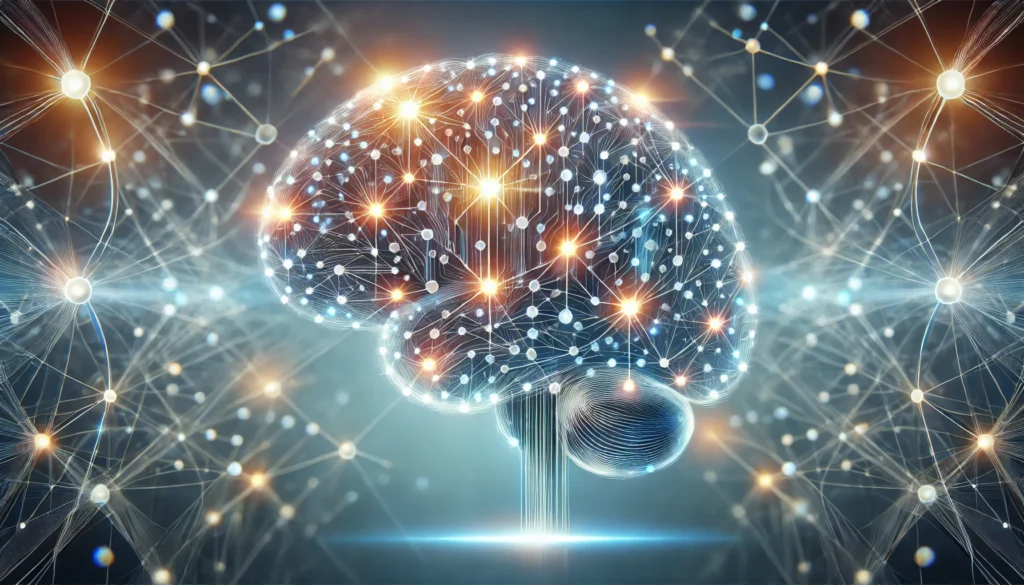Understanding the Importance of Focus and Concentration
In today’s fast-paced world, distractions are everywhere, making it more challenging than ever to improve focus and concentration on work, studies, and daily responsibilities. The ability to concentrate deeply and maintain mental clarity is essential for boosting productivity, solving problems efficiently, and achieving lasting success. Yet, many individuals struggle to improve focus and concentration due to constant multitasking, stress, and information overload. Without effective strategies, staying mentally sharp becomes increasingly difficult. Learning how to improve focus and concentration is not just vital for career advancement, but also plays a crucial role in enhancing overall cognitive health and well-being.
You may also like: How to Improve Gut Health for Anxiety and Depression: Science-Backed Strategies for Better Mental Well-Being.
Focus and concentration are essential cognitive skills that determine how efficiently and effectively an individual processes information. Poor concentration can lead to mistakes, decreased efficiency, and increased stress levels. Those searching for a hard-to-focus cure or seeking ways to really concentrate often turn to quick fixes, such as caffeine or productivity apps. However, long-term improvements require a structured approach that integrates lifestyle changes, mental training, and effective habits. By understanding the root causes of decreased focus and applying scientifically backed strategies, individuals can enhance their ability to sustain attention and maximize their cognitive potential.
The Science Behind Focus and Concentration
Mental focus is the brain’s ability to filter out distractions and sustain attention on a single task. This process involves multiple cognitive functions, including working memory, executive control, and sustained attention. The prefrontal cortex, a region of the brain responsible for decision-making and impulse control, plays a critical role in regulating focus. When distractions interfere with cognitive processing, the brain struggles to maintain efficiency, making it hard to focus.
Neurotransmitters such as dopamine, acetylcholine, and norepinephrine influence concentration levels. Dopamine, known as the “motivation chemical,” enhances engagement and interest in tasks. Acetylcholine facilitates learning and memory, while norepinephrine regulates alertness. Understanding the neurological basis of attention can help in devising strategies to enhance mental clarity and sustain focus throughout the day.
Furthermore, focus is not an infinite resource. The concept of “attention fatigue” suggests that prolonged concentration without breaks can lead to diminished cognitive performance. Research supports the idea that cognitive breaks, mindfulness techniques, and structured work periods can prevent burnout and enhance sustained attention. Learning how to improve concentration and increase attention and focus requires a balanced approach that nurtures the brain’s natural capabilities.

Practical Strategies to Improve Focus and Concentration
1. Creating an Optimal Work Environment
The environment in which an individual works has a profound impact on focus and productivity. A cluttered, noisy, or poorly lit workspace can make it difficult to maintain attention. Establishing a structured, distraction-free environment can significantly improve focus and help keep focus on work for longer periods.
Natural lighting, ergonomic seating, and a well-organized workspace contribute to mental clarity. Studies indicate that exposure to natural light improves cognitive function and reduces eye strain, ultimately helping individuals focus better at work. Additionally, minimizing noise distractions by using noise-canceling headphones or playing instrumental music can create an atmosphere conducive to deep concentration.
Temperature and air quality also play a role in cognitive performance. An overly warm or cold workspace can make it challenging to concentrate, while poor ventilation can lead to mental fatigue. Optimizing environmental factors ensures that cognitive resources are directed toward tasks rather than external discomforts.
2. Implementing Time Management Techniques
One of the most effective ways to enhance focus concentration is through structured time management techniques. The Pomodoro Technique, a method that involves working in short, intense bursts followed by brief breaks, is widely recognized for improving productivity. This approach prevents mental fatigue and allows individuals to maintain high levels of concentration throughout the day.
Another effective strategy is time blocking, where specific periods are allocated for deep work without interruptions. By scheduling tasks in dedicated time slots, individuals can prioritize high-value activities and reduce distractions. This structured approach enables people to stay on track, improve focus at work, and optimize their cognitive performance.
Task batching is another method that minimizes context switching. Grouping similar tasks together reduces cognitive load and enhances efficiency. When individuals engage in multiple unrelated tasks simultaneously, the brain expends extra energy switching between them, leading to reduced productivity and attention span.
3. Training the Brain to Enhance Focus
Just like physical muscles, the brain requires regular training to strengthen its ability to focus. Engaging in cognitive exercises such as puzzles, memory games, and problem-solving activities can improve cognitive flexibility and enhance mental stamina.
Mindfulness meditation is another powerful tool that helps increase attention and focus. Research indicates that regular meditation improves the brain’s ability to sustain attention and reduces mind-wandering. By practicing mindfulness, individuals become more aware of distractions and develop greater control over their thought processes.
Reading complex material, learning a new language, or practicing deep work techniques can further improve focus. These activities stimulate neural pathways associated with attention control, leading to long-term cognitive improvements.
4. Optimizing Nutrition for Mental Clarity
Diet plays a crucial role in cognitive function and focus. Consuming a diet rich in brain-boosting nutrients supports mental performance and enhances concentration. Omega-3 fatty acids, found in fish, flaxseeds, and walnuts, promote brain health and support neurotransmitter function.
Foods high in antioxidants, such as berries, dark chocolate, and green tea, protect the brain from oxidative stress and improve cognitive processing. Additionally, maintaining stable blood sugar levels by consuming balanced meals with protein, healthy fats, and complex carbohydrates prevents energy crashes that negatively impact focus.
Hydration is equally important for cognitive performance. Dehydration can impair memory, reduce alertness, and lead to mental fatigue. Drinking sufficient water throughout the day ensures optimal brain function and enhances concentration.
5. Getting Adequate Sleep and Managing Stress
Sleep is a fundamental component of cognitive function. Inadequate sleep impairs attention, memory, and decision-making abilities. Establishing a consistent sleep schedule, creating a relaxing bedtime routine, and avoiding screen exposure before bed contribute to better sleep quality and improved mental focus.
Chronic stress can also negatively impact concentration. Stress hormones such as cortisol interfere with cognitive processing, making it difficult to stay focused. Stress management techniques, including deep breathing exercises, yoga, and journaling, can help regulate stress levels and support mental clarity.
6. Reducing Digital Distractions and Practicing Digital Detox
Excessive screen time and constant notifications contribute to fragmented attention. Implementing digital detox strategies, such as turning off non-essential notifications, setting designated screen-free times, and using apps that limit social media usage, can help regain control over focus and productivity.
Engaging in offline activities, such as nature walks, reading physical books, or practicing a hobby, allows the brain to recharge and enhances overall concentration. By reducing digital overload, individuals can develop a more sustainable focus routine.

Frequently Asked Questions (FAQ) on Focus and Concentration
1. What are the most effective ways to improve focus at work?
Improving focus at work requires a combination of environmental adjustments, time management strategies, and mental conditioning. One highly effective method is to eliminate distractions by creating a structured workspace with minimal interruptions. Using techniques such as the Pomodoro Method or deep work sessions can help structure tasks into focused time blocks, allowing the brain to engage fully without frequent breaks in concentration. Practicing mindfulness during work hours, such as taking short meditation breaks or practicing deep breathing, can enhance mental focus and resilience against distractions. Additionally, optimizing nutrition by consuming brain-boosting foods and staying hydrated ensures that cognitive function remains at its peak throughout the workday.
2. How can you stay focused for longer periods without getting mentally exhausted?
To stay focused for extended periods, it is essential to balance work with cognitive rest. One effective way to increase attention and focus is by following the 52/17 rule, where 52 minutes of concentrated work are followed by a 17-minute break. Engaging in physical activity during breaks, such as stretching or walking, can help refresh the brain and improve oxygen circulation. Additionally, reducing multitasking and focusing on single tasks at a time enhances efficiency and minimizes cognitive fatigue. Using focus techniques like visualization, where you mentally rehearse completing a task before starting, can also improve task engagement and mental clarity. Lastly, practicing active recall and spaced repetition when learning new information strengthens memory and enhances concentration over time.
3. What actions can help you get back on focus after distractions?
When distractions pull attention away from a task, taking immediate action to get back on focus is crucial. A quick mental reset, such as taking deep breaths or closing your eyes for a few seconds, can help refocus the mind. Reviewing a written to-do list or revisiting a primary goal for the task at hand reinforces commitment and motivation. Using noise-canceling headphones or playing instrumental music can create an auditory environment that minimizes external disruptions. Setting clear and immediate deadlines can also drive urgency, compelling the brain to prioritize the task over distractions. Lastly, adopting the “two-minute rule,” where small tasks are completed immediately instead of being delayed, can prevent minor distractions from accumulating and overwhelming focus.
4. What role does sleep play in improving focus and concentration?
Sleep is a fundamental factor in maintaining cognitive performance and sustaining mental focus. Poor sleep quality impairs memory, decision-making, and the ability to concentrate on complex tasks. Deep sleep, particularly the REM phase, is essential for consolidating learning and processing information efficiently. Those looking for a hard-to-focus cure should prioritize a consistent sleep schedule, aiming for 7-9 hours of restful sleep per night. Avoiding blue light exposure from screens before bedtime helps regulate melatonin levels and promotes better sleep quality. Incorporating a relaxing nighttime routine, such as reading or gentle stretching, can signal the body to wind down and prepare for restorative sleep.
5. How can diet and hydration influence mental focus and concentration?
Diet and hydration play a significant role in supporting brain function and sustaining concentration. Foods rich in omega-3 fatty acids, such as salmon and flaxseeds, enhance cognitive function and improve neural communication. Dark leafy greens, nuts, and berries provide essential antioxidants that protect the brain from oxidative stress and help improve focus. Staying hydrated is equally important, as even mild dehydration can lead to brain fog and reduced concentration levels. Drinking herbal teas, coconut water, or infused water can help maintain hydration without excessive caffeine consumption, which may cause energy crashes. Including moderate amounts of dark chocolate, which contains flavonoids that boost blood flow to the brain, can also support sustained mental clarity.
6. How do mindfulness and meditation enhance focus concentration?
Mindfulness and meditation have been proven to significantly enhance focus and cognitive control by training the brain to resist distractions. Regular meditation practice strengthens the prefrontal cortex, the area responsible for attention regulation and decision-making. Engaging in daily mindfulness exercises, such as deep breathing or guided meditation, helps individuals become more aware of wandering thoughts and reorient their focus quickly. Studies have shown that mindfulness techniques improve working memory, allowing for better retention of information and increased productivity. Additionally, adopting a mindful approach to daily activities, such as eating or walking with full attention, reinforces the brain’s ability to remain present and engaged in tasks.
7. What are some unconventional techniques to increase concentration span?
Beyond traditional methods, unconventional techniques can also help improve concentration span and focus. One approach is neurofeedback training, which involves using brainwave monitoring to identify and optimize cognitive patterns for better attention control. Chewing gum while working has been linked to increased alertness and cognitive performance, possibly due to enhanced blood flow to the brain. Another lesser-known method is practicing the “dual n-back” training, a mental exercise that challenges working memory and improves cognitive flexibility. Using aromatherapy, such as essential oils like rosemary or peppermint, has been found to stimulate mental clarity and improve alertness. Incorporating strategic daydreaming, where one takes short creative thinking breaks, can also rejuvenate the brain and foster problem-solving skills.
8. How does physical activity contribute to mental focus and productivity?
Physical activity is a powerful tool for improving focus, as it enhances blood circulation and increases oxygen supply to the brain. Engaging in moderate exercise, such as brisk walking or yoga, before work can prime the brain for sustained concentration. High-intensity interval training (HIIT) has been shown to improve executive function, making it easier to stay on track with tasks. Additionally, taking micro-exercise breaks, such as performing a few jumping jacks or stretching, can reduce mental fatigue and boost alertness. Engaging in activities that require coordination, such as dance or martial arts, further enhances cognitive flexibility and the ability to really concentrate on complex tasks.
9. How can technology be used effectively to help focus rather than cause distractions?
While technology often contributes to distractions, it can also be leveraged as a tool to help focus and improve productivity. Apps like Forest and Freedom block distracting websites and encourage dedicated work sessions by reinforcing focus discipline. White noise or binaural beats played through headphones can create a productive auditory environment that enhances concentration. Using digital task managers such as Todoist or Notion can help break down projects into manageable steps, making it easier to maintain mental focus. Speech-to-text software allows individuals to capture thoughts quickly without losing train of thought. Setting automated reminders and timers for breaks prevents excessive screen time while ensuring sustained work periods.
10. What long-term habits lead to consistently high levels of focus and productivity?
Building long-term habits that enhance focus requires commitment to sustainable lifestyle changes. Developing a structured daily routine that includes set times for work, rest, and mental stimulation ensures a balanced cognitive workload. Prioritizing deep work sessions over constant multitasking fosters a habit of prolonged concentration. Engaging in lifelong learning, such as acquiring new skills or reading challenging materials, keeps the brain adaptable and sharp. Cultivating a growth mindset, where one views focus challenges as opportunities for improvement, leads to increased resilience and productivity. Lastly, surrounding oneself with a focus-driven environment, whether through accountability partners or structured workspaces, reinforces the habit of staying mentally engaged and consistently improving focus at work.

Conclusion: Achieving Peak Mental Performance
Enhancing focus and concentration requires a multifaceted approach that integrates environmental modifications, time management techniques, brain training, nutrition, sleep optimization, and stress management. By implementing these proven strategies, individuals can develop stronger cognitive abilities, sustain attention for longer periods, and improve overall productivity. Whether aiming to focus better at work, increase attention span, or enhance concentration techniques, adopting these methods leads to improved mental clarity and long-term success. Prioritizing brain health and cognitive enhancement fosters a more focused, efficient, and productive lifestyle.
mental clarity techniques, cognitive performance enhancement, productivity improvement methods, deep work strategies, brain training exercises, workplace efficiency tips, cognitive endurance training, attention span development, mindfulness for concentration, digital detox strategies, executive function improvement, time management for professionals, neuroplasticity and focus, workplace distraction management, optimal work environment setup, stress reduction for productivity, brain-boosting nutrition, sleep optimization for focus, attention control methods, effective learning techniques.
Further Reading:
15 ways to improve your concentration even when you are busy
14 Tips to Improve Your Concentration
Disclaimer
The information contained in this article is provided for general informational purposes only and is not intended to serve as medical, legal, or professional advice. While Health11News strives to present accurate, up-to-date, and reliable content, no warranty or guarantee, expressed or implied, is made regarding the completeness, accuracy, or adequacy of the information provided. Readers are strongly advised to seek the guidance of a qualified healthcare provider or other relevant professionals before acting on any information contained in this article. Health11News, its authors, editors, and contributors expressly disclaim any liability for any damages, losses, or consequences arising directly or indirectly from the use, interpretation, or reliance on any information presented herein. The views and opinions expressed in this article are those of the author(s) and do not necessarily reflect the official policies or positions of Health11News.


